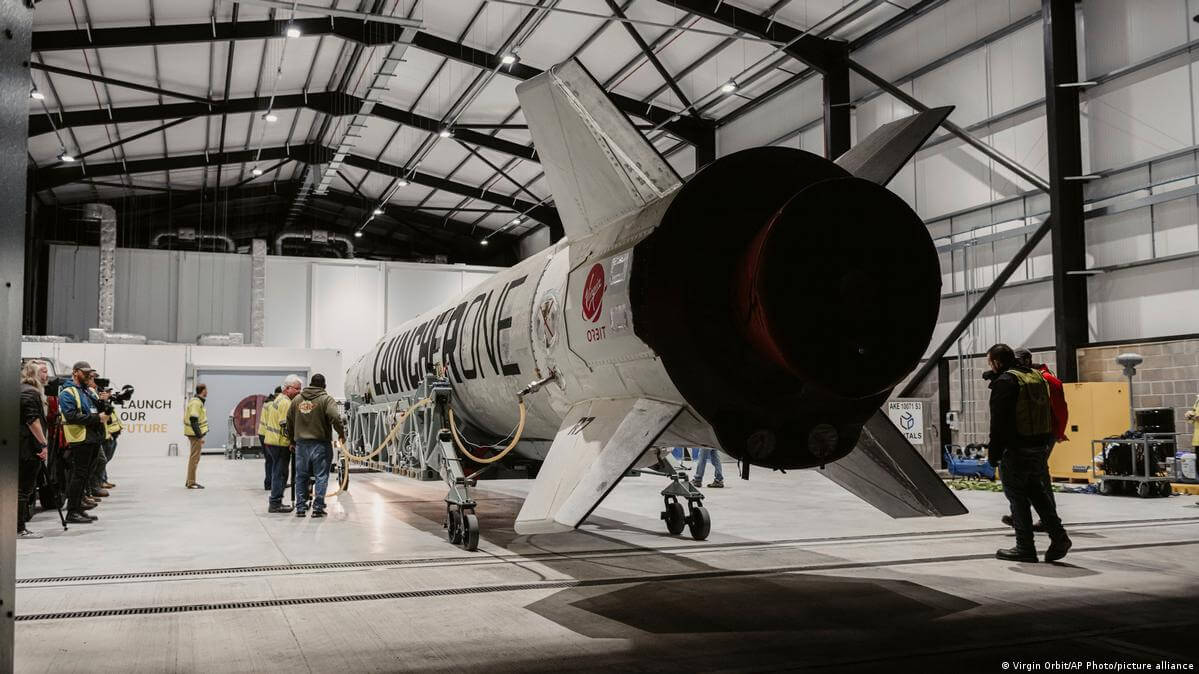On Tuesday, the UK’s attempt to launch satellites into orbit with the help of a rocket attached to the jumbo jet, Cosmic Girl, from Newquay, England, failed due to an “anomaly” in the rocket despite it igniting and ascending correctly.
The rocket carried nine small satellites intended to be deployed for civil and defence use, all of which perished and could not be recovered. If successful, the launch would have improved the UK’s sea-monitoring capabilities, which would help it deter illegal migration, detect fishing and piracy, and monitor the weather.
The American Virgin Orbit company operated the jet.
At least 2,000 people attended the launch, which was being advertised as the “Start Me Up” event. Additionally, 75,000 viewers were watching the event’s live stream.
We appear to have an anomaly that has prevented us from reaching orbit. We are evaluating the information.
— Virgin Orbit (@VirginOrbit) January 9, 2023
REACTIONS
According to the UK Space Agency’s programme director, Matt Archer, the issue occurred in the upper segment of the rocket, which could not reach the intended orbit. The operating company, Virgin Orbit, and government departments will now investigate the exact sequence of events.
However, as the project was insured, the manufacturers and operators of the satellites will receive a stipulated compensation.
Dan Hart, Virgin Orbit’s chief, expressed his regrets that the company could not deliver the “launch service” to its customers. Hart added: “The first-time nature of this mission added layers of complexity that our team professionally managed through; however, in the end a technical failure appears to have prevented us from delivering the final orbit.”
Nevertheless, he promised that the company will “work tirelessly” to investigate the issue and take “corrective actions.”
Virgin Orbit released a statement saying that while the mission could not reach its final objective, it did succeed in the “first-time achievement” of launching an orbital rocket from British soil.
Tonight, will see @VirginOrbit’s Cosmic Girl take flight 🚀 launching 9 satellites above the 🌎, spanning a range of activities aiming to improve life on Earth - including reducing environmental impact, preventing trafficking, smuggling, & terrorism, & aiding national security. https://t.co/k3glMCQ3Li
— U.S. Embassy London (@USAinUK) January 9, 2023
However, Sky News science expert, Thomas Moore, called the launch a “hollow victory” that highlights the difficulties of reaching space despite recent progress in engineering.
UK’S SPACE PROGRAM
While the UK has previously launched rockets into space for atmospheric research and military exercises, this was its first attempt to dispatch a satellite into orbit. In the past, it has used foreign ports to launch its satellites.
Hence, the British government had a lot banking on the launch, especially because the ability to launch satellites would allow it to locally conduct its space missions.
In the run-up to the launch, the British Space Agency’s deputy chief, Ian Annett, said that the mission marked a “new era” for the country’s space capabilities. Annett added that the launch was in pursuance of the UK’s ambition to become “the hub of European launches.”
We’re at @SpaceCornwall gearing up for the first orbital satellite launch from the UK. 🚀
— UK Space Agency (@spacegovuk) January 9, 2023
The launch window opens tonight from 22:16 GMT. ✈️🛰️
Our Deputy CEO Ian Annett breaks down what will happen at launch. 👇
Read more 👉 https://t.co/pjnFCSWc49#LaunchUK #StartMeUp pic.twitter.com/16btD1r9eL
The success of the mission would have made the UK the ninth country to have launched a satellite into the Earth’s orbit from its soil.
EUROPE’S SPACE AMBITIONS
Tuesday’s events come as a setback for European ambitions in space technology as well, given that Italy’s Vega-C rocket mission also failed after taking off from French Guiana in December. Furthermore, the Ukraine war has obstructed the continent’s access to the Russian Soyuz rockets.
Nevertheless, Europe has still witnessed an uptick in its space ambitions. The space industry has been expeditiously commercialised, with most European spaceport projects being private initiatives. There has also been a surge in small space industry start-ups, which has improved modern technology to make rockets and satellites smaller.
From 2022 to 2031, Europe intends to launch 18,500 small satellites. In the previous decade, this number stood at a relatively meagre 4,600.

